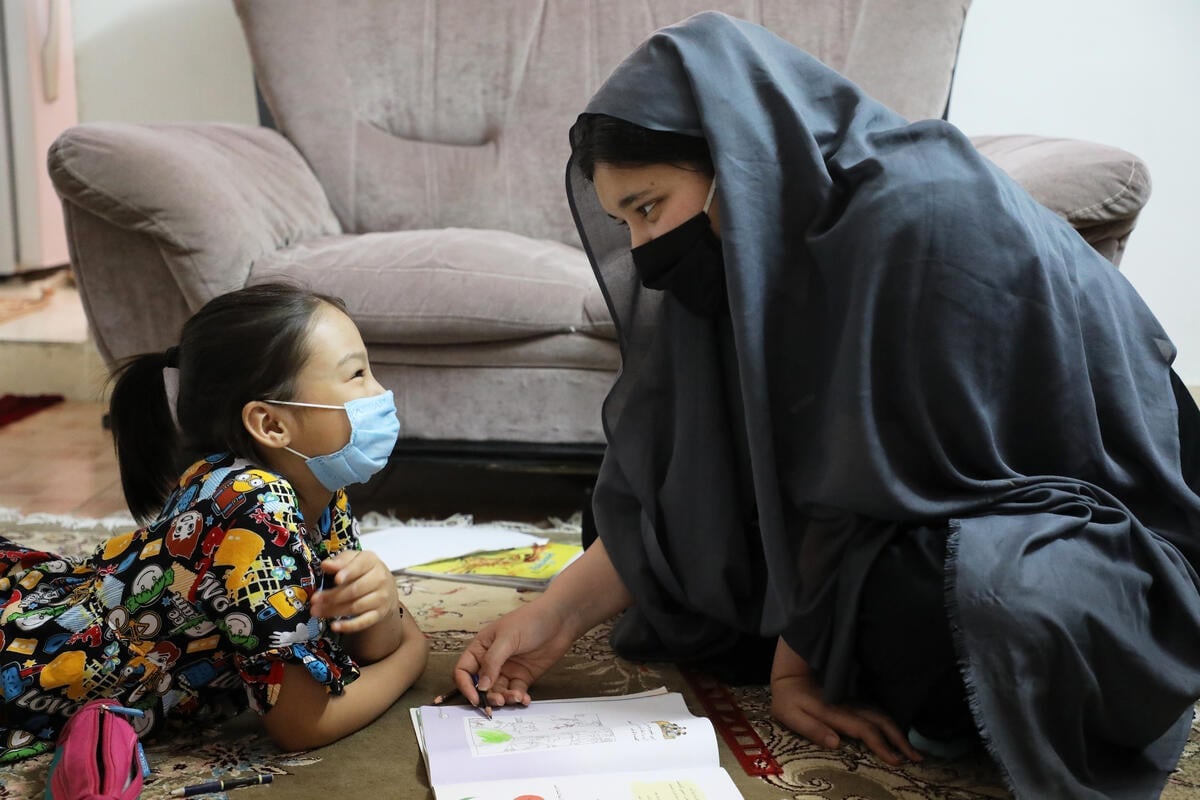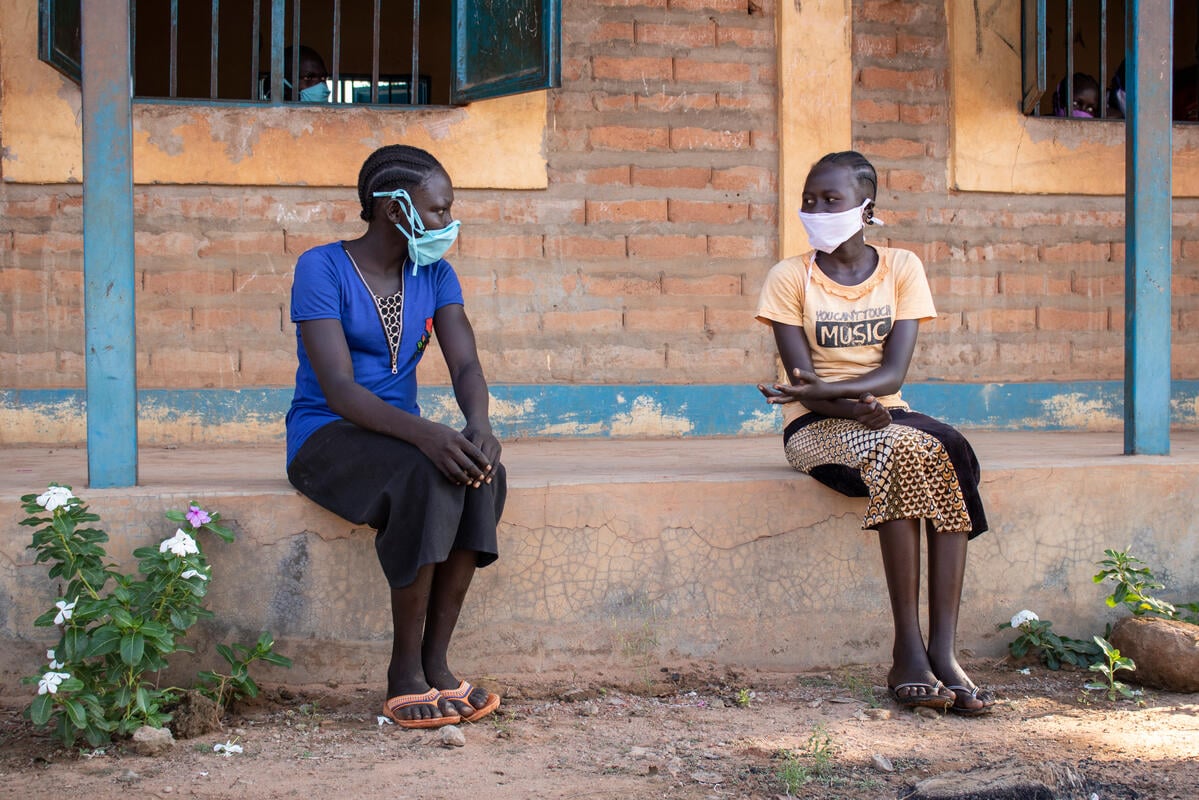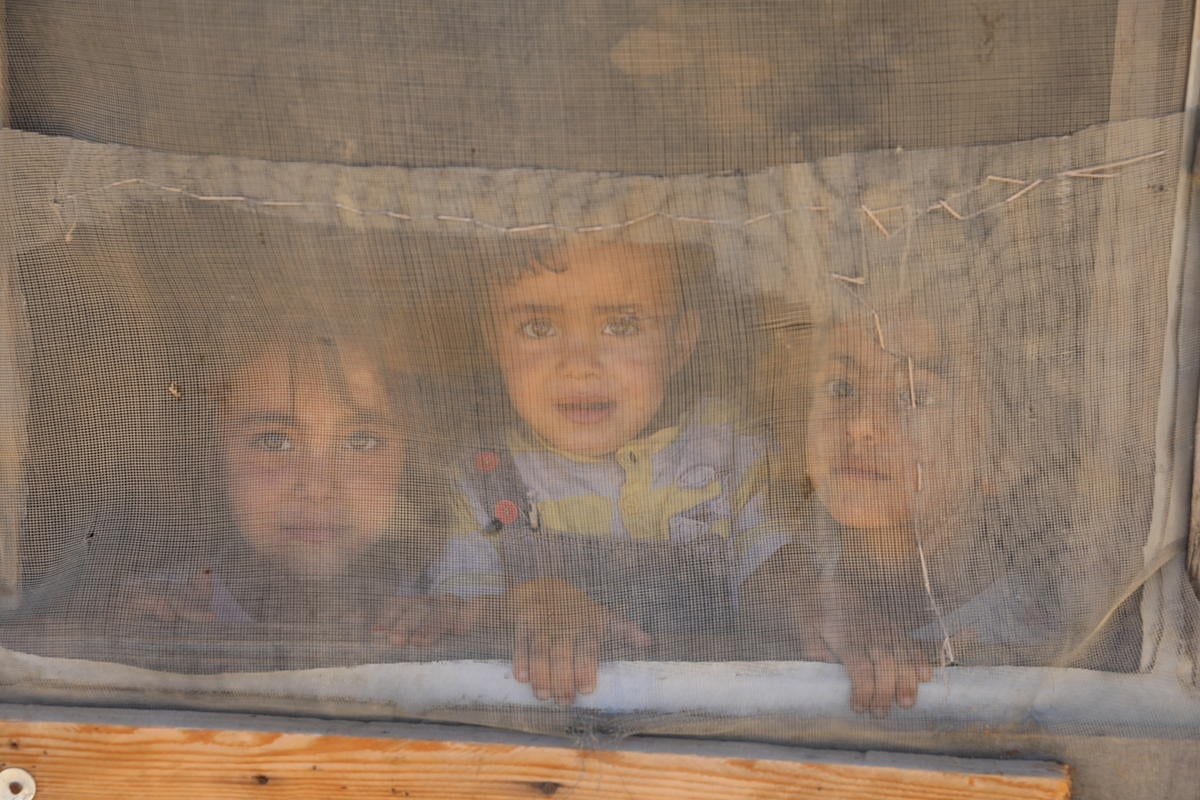'I tell everyone that we need to take this vaccine.'
'I tell everyone that we need to take this vaccine.'

Tut Kiel Tut pulls out a wrinkled paper from his pocket and displays it confidently – it’s proof of his first COVID-19 vaccine shot, which he received over a month ago.
As one of the refugee health workers volunteering in Ethiopia’s Jewi camp, home to some 60,000 South Sudanese refugees, Tut got his first vaccine shot from the regional health bureau in Gambella.
“COVID-19 really created fear in the community, even more than from diseases like malaria and HIV,” says Tut, 40, who has worked as an interpreter in the camp’s health center for years.
He adds that news of how many people had died and how the virus was affecting everybody was rampant.
“When we learnt of a vaccine that could help protect us, people clapped their hands – we were so happy,” he adds.
Ethiopia, Africa’s third-largest refugee hosting country, has included refugees in its national vaccination rollout, meaning that particularly vulnerable individuals and health workers at the front lines across the 26 refugee camps in Ethiopia can access vaccines.
According to Ethiopia’s Agency for Refugee and Returnee Affairs (ARRA), a total of 1,951 refugees had been vaccinated in Gambella region alone, as of 15 June.
“The global pandemic has taught us that no one is safe until everyone is safe.”
“It is so encouraging to see how refugees are helping at the front lines of the response, but also how the Government of Ethiopia is including refugees in their national vaccination program without discrimination,” says Ann Encontre, UNHCR, the UN Refugee Agency’s Representative in Ethiopia. “This is not only proof of true solidarity, but also a good thing to do, as the global pandemic has taught us that no one is safe until everyone is safe.”
Tut understands that part of his responsibility in the health center, is also to help support the COVID-19 response and create more awareness, particularly on vaccination among the refugees and host community, even when he is off duty.
“There is still a lack of knowledge and some resistance towards the vaccine. So, we must push this communication everywhere – at food distributions, in schools and here in the health center,” explains Tut. “I am now vaccinated, and I feel safe, but I still need to show a good example to others.”
Jewi health centre receives on average 250 patients a day and COVID-19 is not the only concern for the refugees seeking medical help here. Malaria, respiratory diseases, diarrhoea, and skin diseases are other common health issues.
The doctors are supported by 163 refugee health workers like Tut and Mary Nyabang, 40, who has worked at the health center for six years, taking care of patients and cooking for them.
Mary is vaccinated and happy that things are improving, as the pandemic has been gravely felt by the community.
“COVID-19 has been disastrous. Everything stopped and it was impossible to earn additional income to support my family. But now, the vaccines are available, and masks are being produced so things are improving,” she explains.
“We need to take this vaccine.”
She feels it’s her duty to be a role model and help create COVID-19 awareness among her peers.
“I talk to my patients at the health centre, the children and my neighbours and I tell them what we should do to protect ourselves and each other,” says Mary. “I also tell them that we need to take this vaccine.”
Globally, UNHCR has called on countries to include refugees, asylum-seekers and stateless people in their national COVID-19 responses.
UNHCR has also urged for stronger support for the COVAX initiative, a worldwide effort to achieve equitable access to COVID-19 vaccines by appealing to countries with surplus doses to share them with lower and middle-income countries and for manufacturers to boost supplies to the COVAX facility.
Back in Jewi camp, the elected representative for the refugee community committee, Tut Yiech, is using his influence as a leader to encourage the community to take the vaccine. But he is also concerned about the availability of enough vaccines coming to the camp.
“People need more vaccines. I received it, yes, but what about the rest of my community?” he asks.











